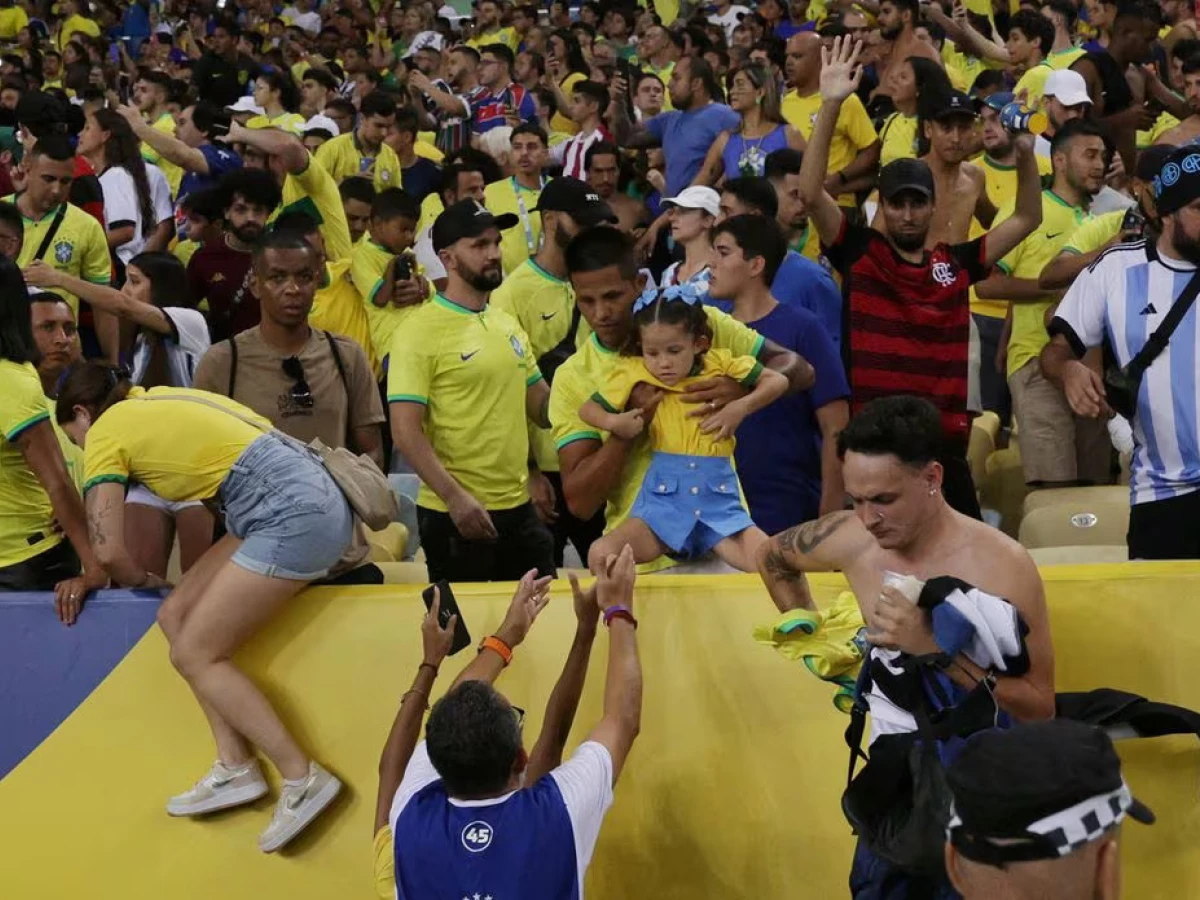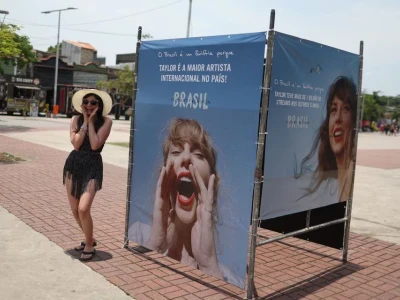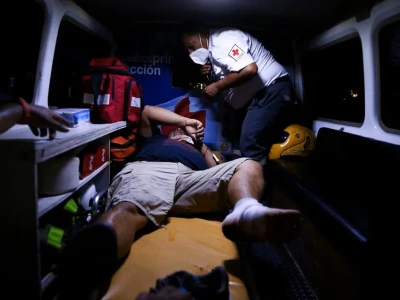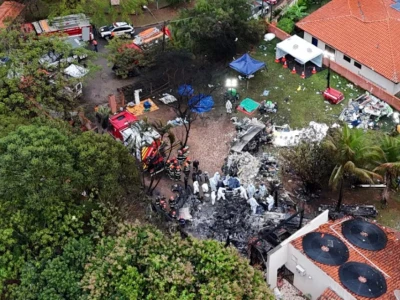
Football clashes, Taylor Swift fan death tarnish Rio de Janeiro ahead of G20
Brazil will take over the rotating presidency of the G20 from India on Dec. 1.
RIO DE JANEIRO, Nov 22 (Reuters) - Police swinging batons at panicking soccer fans. Children weeping in their mothers' arms between the stadium's stands. A man clutching his head as blood streamed down his face.
The shocking scenes of crowd clashes and police violence that marred Tuesday's World Cup qualifier between Brazil and Argentina at the Maracana is the latest incident to tarnish Rio de Janeiro's image as the city gears up for the arrival of world leaders at next year's Group of Twenty (G20) meeting.
Rio is no stranger to high-profile events after hosting the World Cup final in 2014 and the Olympic Games in 2016 amid a backdrop of political turmoil and Brazil's worst recession in decades.
But chaotic scenes at several major events in recent weeks, coupled with Rio's worsening security situation, may concern national organizing committees and representatives for the world's largest economies already planning for the G20 summit.
On Friday, amid a record-breaking heatwave in Rio, a young woman died at a Taylor Swift concert in the Nilton Santos stadium, with widespread complaints of a lack of water inside the scorching venue.
A few days later, at the nearby Maracana stadium, the Brazil-Argentina match was delayed by 30 minutes after ugly scenes broke out in the stands. TV images showed Rio state cops beating Argentina fans with truncheons as chairs rained down upon them. Families with young children ran in fear.
On Wednesday, the Brazilian Football Confederation (CBF) and Rio's state military police traded blame over arrangements for the mixed seating section of Brazil and Argentina fans where the trouble erupted.
The CBF said state police were fully aware of the mixed seating area, adding that it "rigorously complied" with a security and operations plan pre-agreed with Rio authorities.
Rio's state military police criticized the CBF for selling tickets that didn't separate each nation's fans, adding that security inside the stadium was the responsibility of the CBF's private contractor.
Rio's policing of high-profile soccer matches was already under scrutiny after the Copa Libertadores final this month. Tens of thousands of Boca Juniors fans flocked to Rio for the game against local side Fluminense, but scenes of police brutality against Argentines on Copacabana beach soured the spectacle.
"Nothing justifies a repression as brutal as that seen in Copacabana," Argentina's Ambassador to Brazil, Daniel Scioli, wrote on social media at the time.
Brazil will take over the rotating presidency of the G20 from India on Dec. 1, with the meeting of economic powerhouses scheduled to take place in Rio on Nov. 18 and 19, 2024.
Although such events are rigorously planned and protected, a backdrop of eroding public safety in Rio could spoil a rare chance for Brazil to project itself on the global stage.
Earlier this month, Brazilian President Luiz Inacio Lula da Silva temporarily militarized security at Rio's main airport and a major port to tame powerful drug gangs and violent mafias known as "militias" behind a wave of violence that has hurt his polling numbers.
In October, three doctors enjoying a late-night beer along one of Rio's beaches were brutally murdered after being confused for rival gangsters. A few days later, militias set fire to dozens of Rio buses after police killed one of their bosses in an operation.




